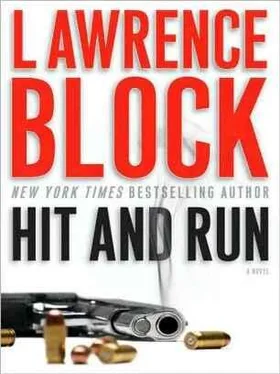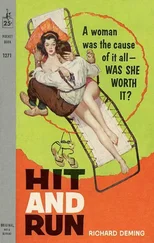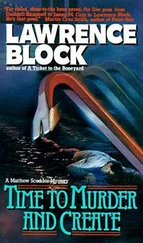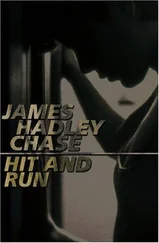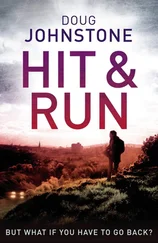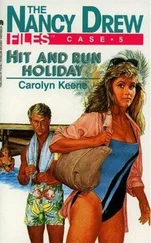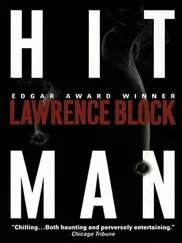Rose Hill, according to Taggert, was Wheeler’s most likely choice, so that was the first place Dot called. Posing as the secretary of one of Wheeler’s fellow golfers, she said she wanted to confirm the foursome’s tee time. It was scheduled for 11:15, said a young woman with a snooty English accent, and would there be four? Because she had Mr. Wheeler down as a party of three.
“Yes, three,” Dot said. “That’s quite right, because Mr. Podston won’t be able to make it after all.”
She hung up and Keller said, “Mr. Podston?”
“What I almost said,” she said, “was Pond Scum. Podston was the best I could do. Eleven-fifteen, that’s when they’re teeing off, so there’s not a lot of time to waste.”
You had to pass a gate attendant and assorted other functionaries at the entrance to Rose Hill Country Club, and then a valet would turn up to park your car. Keller drove right past the entrance and followed the map from the club’s website. Dot had printed out a copy, and he studied it again and decided the best bet was the seventh hole, a 465-yard par four with a dogleg to the left and woods on the right. A slice would put Wheeler in the woods, and that was where Keller decided to wait for him.
And there was a place forty or fifty yards from the fairway where he could park. He had a feeling it wasn’t entirely legal to park there, but any cop who felt compelled to do something about a nice big Cadillac with Oregon plates parked where it wasn’t in anybody’s way, well, the worst result would be a ticket, not a tow.
The only problem was that the parking spot was on the wrong side of the fairway. To get to the woods you had to cross the fairway, easy enough for Keller, but not so easy for a man with a broken leg. Keller could put an arm around Taggert and take most of his weight, but what would the two of them look like to anybody playing the hole? And you couldn’t just wait until a foursome played through, not with the amount of time it would take to get Taggert across the fairway; by the time they were halfway across, the next group of golfers would be at the tee.
One man trotting across a fairway, that was nothing remarkable. Two men, one unable to walk, the other struggling to assist him — even someone as singleminded as a golfer would zoom over on his cart to see what was wrong, and what he could do to help.
And could Taggert make it across, even with support? His entire lower leg, including the knee joint, was swollen and inflamed. They’d removed his shoe earlier, when Taggert complained that his foot had grown too large for it, and now it was larger still, twice the size of the other one.
No, the man couldn’t go anywhere.
“You’re going to have to wait here,” Keller told him. “In the trunk.”
“The trunk!”
“It won’t be that uncomfortable, and you won’t be in there that long. As soon as my work’s done, I’ll run you to a hospital and you can get that taken care of.”
“But what if—”
“If I don’t come back?”
“I didn’t want to say that.”
“Well, it’s possible. But there’s a latch, remember? You’re the one who told me about it. For kids playing refrigerator.”
“How am I supposed to reach it with my hands tied behind my back?”
“That’s a point,” Keller conceded, and clipped the wire on Taggert’s wrists. It still was no easy matter getting him into the trunk, and throughout it Taggert reeled off a litany of complaints — his leg was killing him, he could barely move his fingers, his shoulders felt dislocated, di dah di dah di dah.
“It won’t be long,” Keller said. He put the shotgun on the floor of the trunk, near Taggert’s swollen foot, and checked to make sure that the revolver was fully loaded.
“You’re leaving me the gun?”
“The shotgun? I don’t want to carry it around on the golf course. Too easy for somebody to spot it.”
“So you’re leaving it with me?”
“Although I suppose they’d just mistake it for a four wood. But it’s bulky, I don’t want to carry it.”
There was a car coming. Keller turned so his face wouldn’t show, waited for the car to pass. Meanwhile, Taggert said he was glad Keller trusted him enough to leave the shotgun with him.
“It’s not exactly a matter of trust,” Keller said.
When four golfers played a round together, you called it a foursome. Benjamin Wheeler was grouped with two other men, so it stood to reason that you’d call them a threesome, but you couldn’t use that word nowadays without imagining all three of them in bed, twisted into some unlikely position. Keller figured there ought to be a way around it, but he wasn’t sure what it might be. A trio? Maybe.
He stood in the woods halfway up the fairway of the seventh hole. He’d left his jacket in the car, and was dressed in a pair of dark slacks and a polo shirt, reasonable attire for a golf course. He didn’t think anyone had seen him stride across the fairway, but if they had, there’d been nothing in his appearance to set off any alarms. The question might arise as to just what he was doing there, without cart or clubs, lurking among the trees and bushes.
But then lurking was suspicious by definition, wasn’t it? The trick in lurking was to appear to be doing something else, but Keller couldn’t think of anything. What would anyone do there other than lurk? Well, look for a lost golf ball, he thought, but the companionable thing to do when you came upon someone so engaged was to help him look for it, and that was the last thing he wanted.
Best, then, not to be noticed at all. And so he kept himself deep enough in the woods to pass unnoticed, surfacing now and then to inspect each arriving group of golfers, making sure Wheeler was not one of their number, and then slipping back once again into the shadows.
In Arizona — Tucson, not Sedona — Keller had once rented a house on a golf course. He hadn’t been interested in either the house or the game, but it was the only way he could find to gain access to his quarry’s gated community. (If its residents were all bisexual, Dot had suggested, you might call it a double-gaited community.) His one-month sublet had brought with it membership in the on-premises country club, and access to its championship golf course. Keller had made use of the club’s bar and restaurant and hobnobbed with its golfer members, without ever quite managing to pick up a golf club or set foot on the course.
Of course he’d watched the sport on television, though never with enormous enthusiasm. He found it more bearable than basketball or hockey, if less involving than football or baseball. The scenery, undulating expanses of green enlivened by tan sand traps shaped like amoebas, was restful to look at, and the announcers spoke in low tones, and sometimes even kept their mouths shut. The only way to improve on something like that, Keller sometimes thought, was to turn off the set altogether.
Now, as Keller watched from the woods, he had no announcers to contend with, and no commercials, either. The tee was two hundred fifty yards to his left, the green almost that far to his right, and what he mostly saw were golfers gliding past him in their carts. Golf was what prosperous men did for exercise, but there didn’t seem to be much exercise involved. A good walk spoiled , he’d heard the game called, but that was back when there was some actual walking involved in it. Now all you did was ride from one shot to the next.
He had to pay close attention, because he wasn’t sure he’d be able to spot Benjamin Wheeler. The face in the photographs was distinctive enough, certainly, but how distinctive would it be at two hundred yards?
For the first time in months, Keller had a handgun tucked into the waistband of his trousers, pressing against the small of his back. He’d left the shotgun in the trunk of the Cadillac, and was just as glad, but he found himself wishing he’d brought the other long gun, the rifle. Not to try a shot at distance, but because the thing had been fitted with a scope sight, and the scope all by itself would be useful now as an aid in spotting his target. Meanwhile he stared hard at every golfer who came along, and none proved to be the man he was waiting for.
Читать дальше
